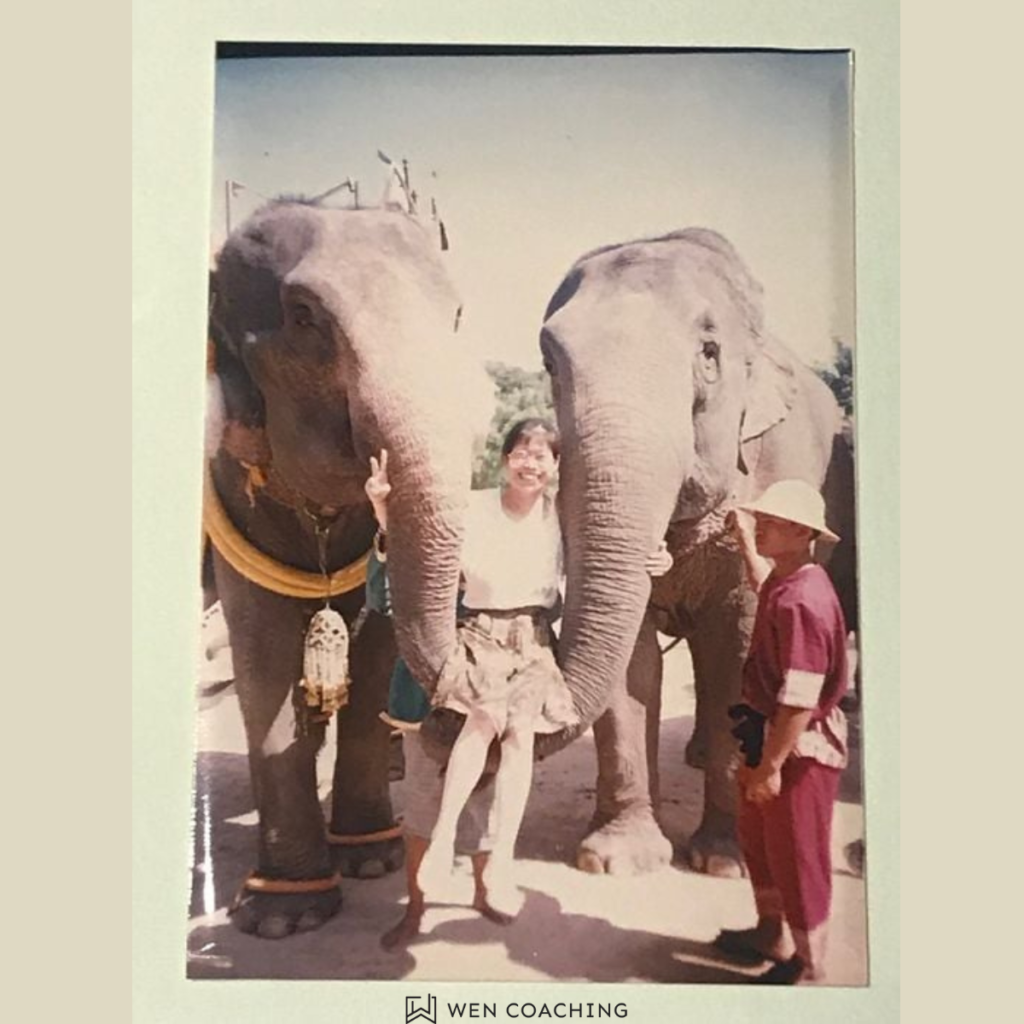‘My mom died too young,’ I confessed, holding the microphone with trembling hands during a 5-day program designed to challenge my beliefs.
The memory is vivid.
I was in college, studying for midterms, when I received a call from my department – my mom was in the hospital.
I rushed home, then to her side, where she lay unconscious, sustained by life support.
Initially, we urged her to be strong, prayed for a miracle.
But after two weeks, her organs failed one by one.
We decided to say our goodbyes, and I promised to look after my sisters.
The night after our farewell, she passed away.
‘Don’t cry,’ they advised. ‘She won’t rest in peace if you are sad.’
So I held back my tears, believing them to be useless and weak.
It wasn’t until two decades later, during a session with my amazing coach, Annie, that I finally allowed myself to cry.
It’s like the flood gate has been opened.
I couldn’t stop it nor wanting to stop.
When my partner heard the sound, she rushed in and asked worriedly, ‘What’s wrong?’
All I could say through my tears was, ‘my mom died.’
For the first time, I gave myself permission to fully feel the loss of the most precious person in my life.
Back in the program, my instructor, Katie, asked me:
‘Your mom died too young. Is it true?’
‘Yes,’ I whispered.
‘Can you absolutely know that it’s true?’
‘No,’ I admitted.
‘How do you react when you believe that thought?’
‘I feel like things happen to me and I have no control. I feel like a victim. I am mad at my mom for leaving me. I feel disappointed in the world.’ I feel hopeless.
‘Who would you be without that thought?’ Katie continued.
Closing my eyes, I imagined myself back at the hospital, this time without my belief.
It was tough, but after some time, clarity came.
‘Without that thought, I can see that my mom has done all the work she needed to do on this earth. I see that she can stop the pain and suffering in her body. I see that she trusts us to take care of ourselves and each other.’ Immediately, I felt much lighter and happier.
Katie’s next question touched everyone in the room: ‘How many of you saw her mom in your mind’s eye?’
More than half of the room raised their hands in response.
‘She lives as long as you need her to be around,’ Katie concluded.
With each tear, I felt resentment, anger, confusion, and heaviness leave my body.
This release opened me to new realizations.
I saw the burdens shouldered by my older sister. As the oldest, she not only needed to hide her grief but took on more family responsibility.
I saw the relative shortness of the time my younger sister had with our mom.
I saw how my aunt carried my mom’s blessing at my wedding.
Free from my old belief, I felt an overwhelming capacity for love — love from my mom, my family, Katie, my classmates, and the world.
And I have so much love to give, especially to you, who are reading this.
We are all loved. It’s our birth right even if we can’t see it.
“Nothing is hurt; nothing is lost. One brief moment and all will be as it was before. How we shall laugh at the trouble of parting when we meet again!” ~ Henry Scott Holland, Death is Nothing at All

Loving you,
Wen